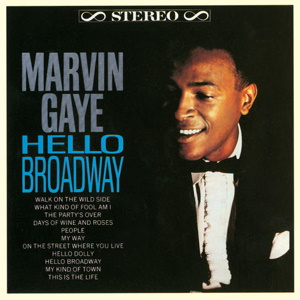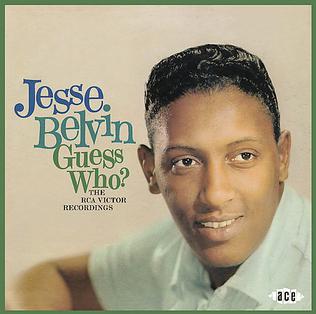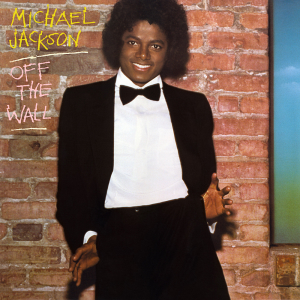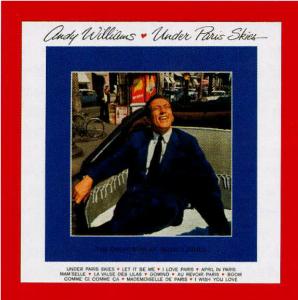
William Clarence Eckstine was an American jazz and pop singer and a bandleader during the swing and bebop eras. He was noted for his rich, almost operatic bass-baritone voice. In 2019, Eckstine was posthumously awarded the Grammy Lifetime Achievement Award "for performers who, during their lifetimes, have made creative contributions of outstanding artistic significance to the field of recording." His recording of "I Apologize" was given the Grammy Hall of Fame Award in 1999. The New York Times described him as an "influential band leader" whose "suave bass-baritone" and "full-throated, sugary approach to popular songs inspired singers like Earl Coleman, Johnny Hartman, Joe Williams, Arthur Prysock, and Lou Rawls."

Storm Front is the eleventh studio album by American singer-songwriter Billy Joel, released on October 17, 1989. It was Joel's third album to reach No. 1 in the U.S. and features "We Didn't Start the Fire", a fast-paced song that cataloged a list of historical events, trends, and cultural icons from 1949 until 1989, which was Joel's third Billboard No. 1 hit.

Where Did Our Love Go is the second studio album by Motown singing group the Supremes, released in 1964. The album includes several of the group's singles and B-sides from 1963 and 1964. Included are the group's first Billboard Pop Singles number-one hits, "Where Did Our Love Go", "Baby Love", and "Come See About Me", as well as their first Top 40 hit, "When the Lovelight Starts Shining Through His Eyes", and the singles "A Breathtaking Guy" and "Run, Run, Run".

Hello Broadway is the fourth studio album by soul singer Marvin Gaye, released in 1964. It is an album of standards and Broadway material.

"People" is a song composed by Jule Styne with lyrics by Bob Merrill for the 1964 Broadway musical Funny Girl starring Barbra Streisand, who introduced the song. The song was released as a single in 1964 with "I Am Woman", a solo version of "You Are Woman, I Am Man", also from Funny Girl.

The Great Otis Redding Sings Soul Ballads, simply referred to as Soul Ballads or Sings Soul Ballads, is the second studio album by American soul singer-songwriter Otis Redding, released in 1965. The album was one of the first issued by Volt Records, a sub-label of Stax Records, and Redding's first on the new label. Like Redding's debut Pain in My Heart (1964), Soul Ballads features both soul classics and originals written by Redding and other Stax Records recording artists. The recording sessions took place at the Stax studios in Memphis. The album features a stereo mix made by engineer Tom Dowd, replacing the early mono mix.

Donna Summer is the tenth studio album by American songwriter Donna Summer, released on July 19, 1982, by Geffen Records. It featured the Top 10, Grammy-nominated "Love Is in Control " single. The album itself saw a drop in chart position from her previous album, peaking at No.20, but ultimately outsold it by remaining on the Billboard 200 for 37 weeks - nearly 20 weeks more. Its longevity was aided by follow-up singles "State of Independence" and "The Woman in Me", which charted at 41 and 33 respectively.

Guy Eckstine is an artist manager and record producer, known for his tenure as A&R executive at Verve Records in the 1990s. With jazz keyboardist Herbie Hancock, Eckstine co-produced the Hancock album The New Standard.

Jesse Lorenzo Belvin was an American singer, pianist and songwriter popular in the 1950s. Belvin co-wrote the 1954 Penguins' doo-wop classic "Earth Angel", which sold more than 10 million copies, while his top recording was the 1956 single "Goodnight My Love", a song that reached No. 7 on Billboard's R&B chart.
William Mitchell Byers was an American jazz trombonist and arranger.

At Basin Street East is a 1961 live album by Billy Eckstine, accompanied by a big band arranged and conducted by Quincy Jones. It was originally released on October 1, 1961, on the EmArcy label, but reissued in 1990 by Polygram. The album was recorded at the Basin Street East nightclub in New York City.

"Stormy Monday Blues" is a jazz song first recorded in 1942 by Earl Hines and His Orchestra with Billy Eckstine on vocals. The song was a hit, reaching number one in Billboard magazine's "Harlem Hit Parade", and was Hines' only appearance in the charts.

Billy Eckstine Sings with Benny Carter is a 1986 album by the American singer Billy Eckstine, accompanied by the alto saxophonist Benny Carter. The singer Helen Merrill appears in duet with Eckstine on the first and last songs of the album. This was Eckstine's only LP released on Verve Records, and marked his final album recordings.

Off the Wall is the fifth studio album by the American singer Michael Jackson, released on August 10, 1979, by Epic Records. It was Jackson's first album released through Epic Records, and the first produced by Quincy Jones, whom he met while working on the 1978 film The Wiz. Several critics observed that Off the Wall was crafted from disco, pop, funk, R&B, soft rock and Broadway ballads. Its lyrical themes include escapism, liberation, loneliness, hedonism and romance. The album features songwriting contributions from Stevie Wonder, Paul McCartney, Rod Temperton, Tom Bahler, and David Foster, alongside three tracks penned by Jackson himself.

Shirley Stops the Shows is the seventh Shirley Bassey studio album, her 5th and final studio album recorded for the EMI/Columbia label in the UK. Released in 1965, this album is a mix of standards and showtunes. Shirley Bassey was at a high point in her career, with worldwide success of her single "Goldfinger", but the album failed to chart in the UK, a first for her Columbia albums. The album met with more success in the US, reaching number 85 in the US Pop charts. For the US market it was issued with an alternative running order, retitled Shirley Bassey Belts the Best! and "The Lady Is a Tramp" was replaced by "Goldfinger". Original release was in mono and stereo, both mono versions feature an alternative studio recording of "People" which has not yet been re-issued on CD. The stereo version, remastered, was issued on CD in 2008 together with 12 of Those Songs by BGO Records.

Under Paris Skies is the seventh studio album by American pop singer Andy Williams and was released in the fall of 1960 by Cadence Records. This, his final LP for the label, is a collection of songs that Joseph Laredo describes in the liner notes of the CD release by Varèse Sarabande as "a delightful program of twelve compositions, selected by Williams, that proved an engaging mixture of genuine French popular songs and American-penned emulations."

Now Singing in 12 Great Movies is a 1963 studio album by the American singer Billy Eckstine. It was arranged by Billy Byers, conducted by Bobby Tucker, and produced by Quincy Jones.

Don't Worry 'Bout Me is a 1962 studio album by the American singer Billy Eckstine. It was arranged by Billy Byers, conducted by Bobby Tucker, and produced by Quincy Jones. The album peaked at 92 on the Billboard 200, and was highlighted at a "National Breakout Album" by Billboard in November 1962.

Broadway, Bongos and Mr. B is a 1961 studio album by the American singer Billy Eckstine. It was arranged by Hal Mooney, and marked Eckstine's return to Roulette Records. The album features Latin tinged arrangements of popular Broadway show tunes, with a percussion section of xylophones, marimbas and bongos.

The Golden Hits of Billy Eckstine is a 1963 studio album by the American singer Billy Eckstine. It was arranged by Billy Byers, conducted by Bobby Tucker, and produced by Quincy Jones.



















